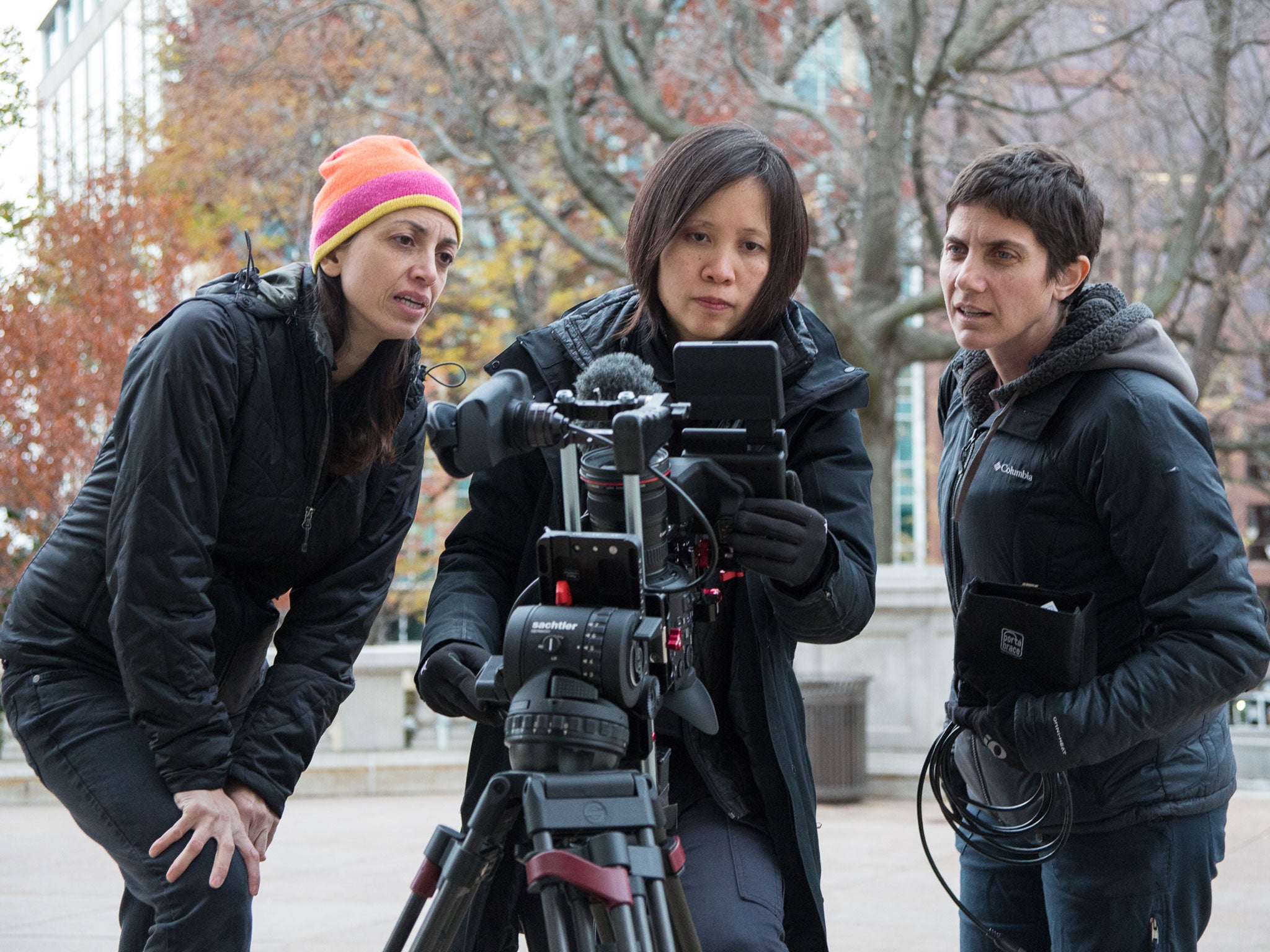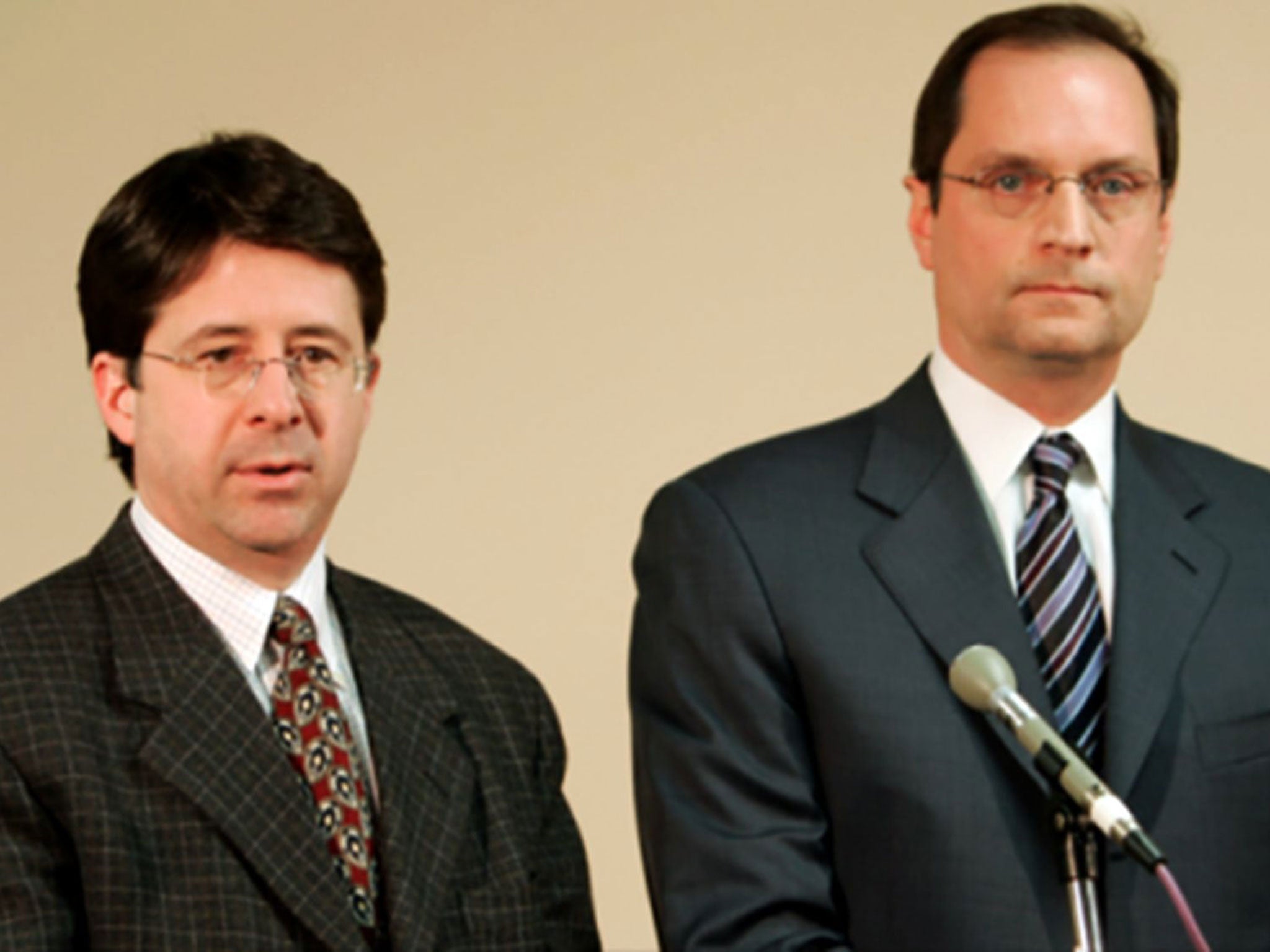Making a Murderer: Netflix documentary on Steven Avery 'could not be made in UK due to lack of open justice'
Legal experts express concern lack of access to case files and in England and Wales inhibits making of similar projects

Your support helps us to tell the story
From reproductive rights to climate change to Big Tech, The Independent is on the ground when the story is developing. Whether it's investigating the financials of Elon Musk's pro-Trump PAC or producing our latest documentary, 'The A Word', which shines a light on the American women fighting for reproductive rights, we know how important it is to parse out the facts from the messaging.
At such a critical moment in US history, we need reporters on the ground. Your donation allows us to keep sending journalists to speak to both sides of the story.
The Independent is trusted by Americans across the entire political spectrum. And unlike many other quality news outlets, we choose not to lock Americans out of our reporting and analysis with paywalls. We believe quality journalism should be available to everyone, paid for by those who can afford it.
Your support makes all the difference.Making a Murderer is captivating television audiences on both sides of the Atlantic and has already been hailed as one of the most important documentary series ever made.
But legal campaigners warn that the cult Netflix hit – which exposes the unfairness of the US criminal justice system – could not be made in the UK because of the growing restrictions on open justice.
Since the show’s release on 18 December, more than 100,000 people have signed a petition calling for Barack Obama to pardon Steven Avery, the subject of the 10-part true crime series.
Avery is serving life for a 2005 murder in Wisconsin, despite presenting evidence at his trial that he had been framed by local police officers. At the time of his arrest Avery was suing the local force for $36m after wrongly serving 20 years for a 1985 rape that DNA evidence subsequently proved he did not commit.
Making a Murderer, based on a decade of research by its creators Laura Ricciardi and Moira Demos, has both gripped and shocked American audiences. Forbes magazine described it as “Netflix’s most significant show ever”. The two chief defence lawyers, Dean Strang and Jerry Buting, have become unlikely internet heart-throbs. Its success has cemented the importance in American broadcasting of the true crime genre, following the recent popularity of the HBO series The Jinx and the podcast Serial.
But legal experts in Britain have expressed concern that the lack of access to case files and court transcripts from the justice system in England and Wales inhibits the making of similarly detailed media projects on suspected miscarriages of justice.

“Lawyers and journalists have been asleep at the wheel and allowed the British system to become secret,” said Emily Bolton, a lawyer for the non-profit Centre for Criminal Appeals. She appealed for court transcripts and police and prosecution files to be maintained digitally for future inspection.
In England and Wales, cameras are banned from crown and magistrates’ courts and only permitted in the Court of Appeal, where their use is highly restricted. Court transcripts, which could offer researchers a verbatim record of cases, are destroyed after five years, unless they have been placed under a preservation order. Case files are usually destroyed after six years.
Marika Henneberg, a senior lecturer in the Institute of Criminal Justice Studies at the University of Portsmouth, has watched Making a Murderer and been astonished by the access the research team had to materials from a historic case. “This is raw justice in action,” she wrote in a contribution to The Justice Gap blog. “Having worked with wrongful convictions for nearly a decade, I am overwhelmed by the accessible and ‘open’ justice process that this documentary highlights. In England and Wales such an open justice process does not exist.”
Ms Henneberg is advising Omar Benguit, who maintains his innocence of a murder in Bournemouth in 2002. He underwent three trials, the transcripts of which have been destroyed.
“Appellants in our jurisdiction deserve the same accessible and open justice process that can be seen in Making a Murderer,” she said.
In British broadcasting, this subject area was largely abandoned with the demise of the highly-regarded BBC series Rough Justice, which was on air for 27 years until 2007.
Professor Julie Price of Cardiff Law School said its Innocence Project was working on a dozen possible miscarriages of justice, but found that media publicity could cause “insurmountable problems” to clients.
Ms Bolton said media programmes played an important role in the public understanding of the justice system’s fallibility. “These programmes put people in the shoes of the criminal defendant,” she said.
But Louise Shorter, who was a producer on Rough Justice for 10 years before setting up Inside Justice, a miscarriage of justice investigative unit, said programmes could still be made and public interest in such stories never waned.
She is making The Station, a BBC programme with similarities to the US true crime hits. It will “interweave layers of unfolding narrative, telling the past tense story of [a] crime along with the present tense investigation”, said the BBC. Ms Shorter said: “It’s going to be reviewing a case not a million miles away from the programmes you are talking about.”
Join our commenting forum
Join thought-provoking conversations, follow other Independent readers and see their replies
Comments